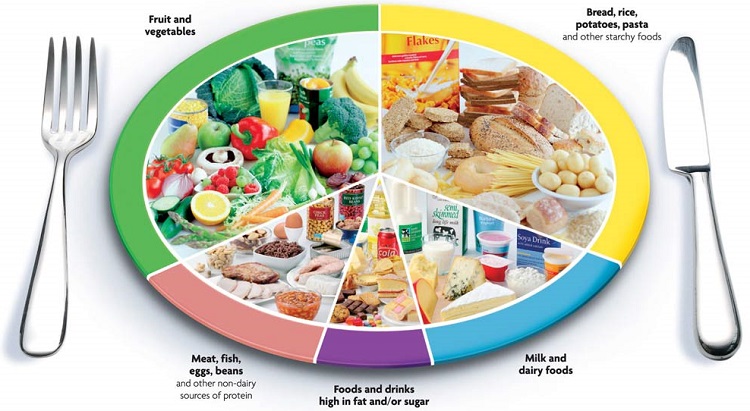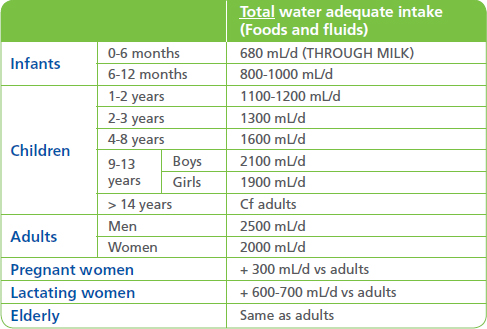Book: Nutrition and Eating Well
| Site: | Dementia Family Carer E-Learning Courses |
| Course: | Home Based Care - Home Based Education Demo 2021 |
| Book: | Book: Nutrition and Eating Well |
| Printed by: | Guest user |
| Date: | Thursday, 3 April 2025, 2:44 AM |
1. Introduction
In this Topic, we look at how a diagnosis of dementia can effect healthy living.
The Learning Outcomes for this Topic are to:
- understand how there may be a change in the relationship with food due to dementia
- learn key strategies for helping someone living with dementia eat well
- understand the importance of a balanced diet for people whose eating and drinking habits may change
The Resources and Activities in this book should take approximately 45 minutes to complete. Taking part in the forums will require additional time.
2. Overview
This book will set out some ideas about how you can keep your loved one active and healthy. This is so important as dementia progresses. We will look at the importance of having a varied and balanced diet, both in terms of food and drink.
In the short video below, Professor Graham Nash, Director of Dementia Care, BUPA UK gives some introductory guidance for family carers around food and drink intake.
Video available at: https://youtu.be/3n6U4bR7I5o
3. A balanced diet

Image credit: "The eatwell plate", Food Standards Agency, UK.
People with dementia do not necessarily have any special dietary requirements.
However, like the rest of us, they do need a healthy, nutritious and balanced diet.
You might be interested in the following websites:
4. Dementia and Nutrition
As Dementia progresses, your loved one may experience an altered sense of taste or smell.
The ability to interpret sensations such as hunger, thirst and feeling full may be reduced or lost.
Distraction and not understanding that food is to be eaten may impair nutrition intake.
Over time your loved one may lose their appetite or start over-eating.
5. Food and Dementia
Take a look at this short video presentation for more details on the reasons why a person with dementia might not eat well.
This video is available to view at: https://www.youtube.com/watch?v=ds_3De-ye1k
6. Pause and Reflect
Take a few minutes to think about issues of food and nutrition for your loved one with dementia.
- How easy or difficult is it to know if food and nutrition are an issue or problem for your loved one with dementia?
- Could hunger or thirst be a factor in responsive behaviour for your loved one?
- Has appetite or food preferences changed for your loved one?
- And is it easy for your loved one to communicate food wishes and preferences with you?
Consider these questions and post your thoughts in Your Experience: Nutrition and Eating Well.
7. Hydration and Dementia
Adequate fluid intake is very important for your loved one. Male adults need to drink 2 Litres of fluids per day, while female adults need 1.6 Litres per day.

Image credit: Hydration for Health
Try to ensure your loved one is adequately hydrated throughout the day. Fluids can be gained from food such as soups and stews, yoghurts, sorbets, fruit and vegetables. Good hydration can help with cognition.
Reduced fluid intake can cause headaches and constipation.
Don't be tempted to reduce fluids to stop incontinence.
Encourage a variety of hot and cold drinks that your loved one enjoys.
Seek medical advice if your loved one is constantly / excessively drinking fluids as there may be an underlying health problem.
8. How to improve food intake
Take a look at the short video presentation on some practical and easy ways to improve food intake.
This video is available to view at: https://www.youtube.com/watch?v=RUsEOXlExDM
Having watched the video, is there anything else you would like to add to the Your Experience: Nutrition and Eating Well activity?
9. Summary
In this short book on Nutrition & Eating Well, we have outlined the importance of food, nutrition and hydration in delivering a healthy living strategy for your loved one with dementia. We have shared some ideas and tips to improve food intake for your loved one, as this is so important as their dementia progresses.
You might also find the following information in our Additional Resources section:
Don't forget, you can also complete the optional Week 3: Care Delivery Action Plan. This can help you apply the materials from this topic to your own particular caring situation.